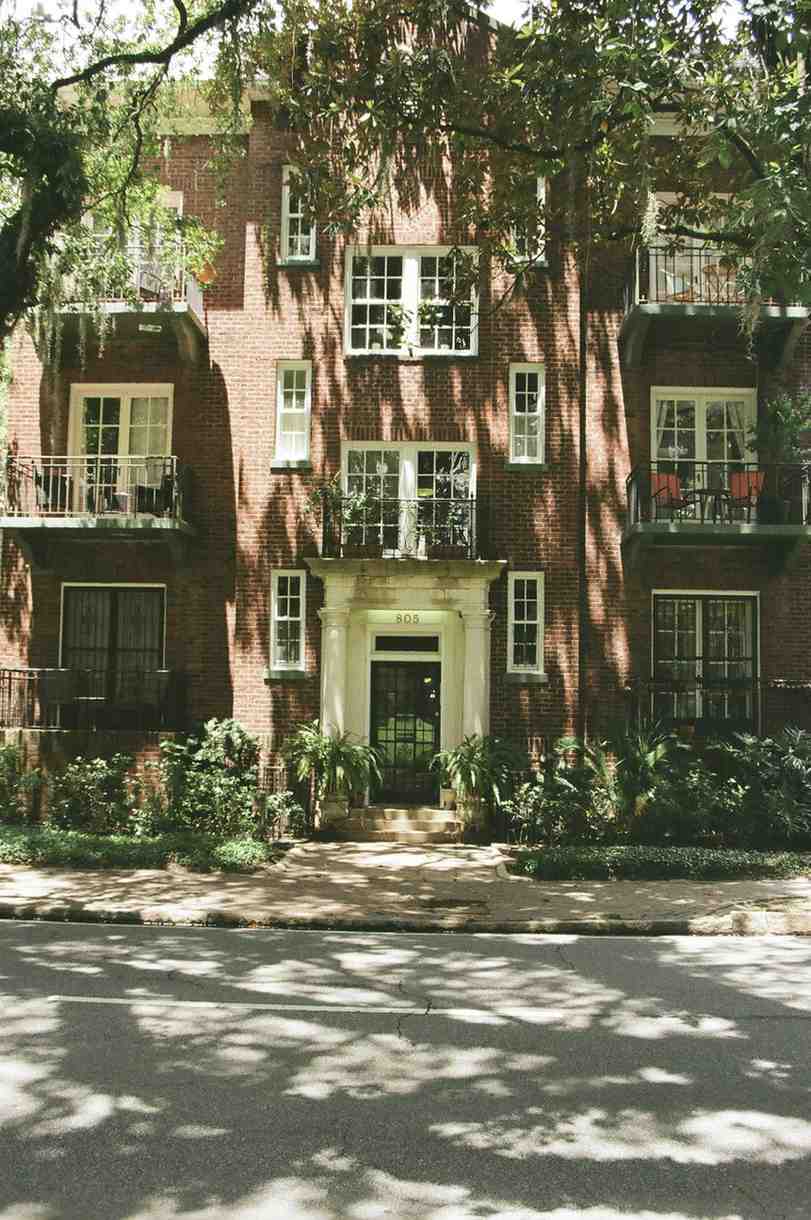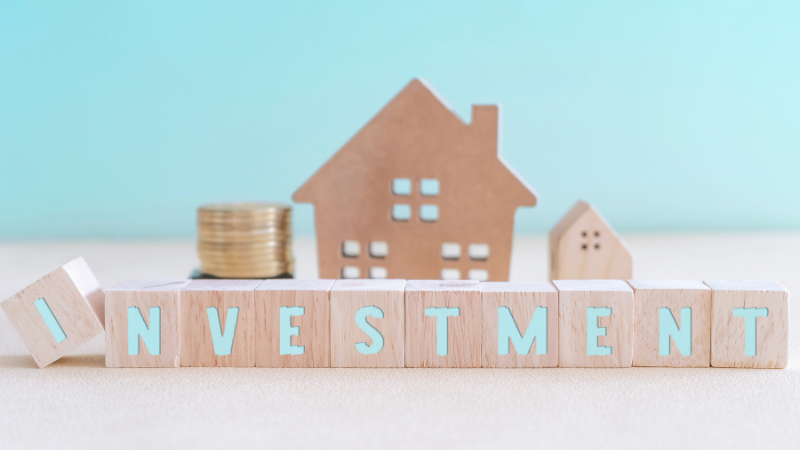Are you considering purchasing a home in Georgia? With its diverse neighborhoods, growing economy, and relatively affordable housing compared to many other states, Georgia continues to be an attractive destination for homebuyers.
However, navigating the home loan landscape can be challenging, especially as market conditions evolve. At Defy, we’re committed to making your homebuying journey simpler by offering innovative loan solutions tailored to your specific needs, whether you’re a first-time buyer, investor, foreign national, or someone with unique financial circumstances.
This comprehensive guide will help you understand home loans in Georgia, current market trends, and the best neighborhoods to consider for your next home purchase whether it’s for yourself or for investment purposes.
Georgia Real Estate Market: Current Trends and Statistics
Understanding the current real estate market is essential before diving into home loan options. According to recent data from the Georgia Multiple Listing Service (GAMLS), the Atlanta Metropolitan Statistical Area (MSA) shows some interesting trends that potential homebuyers should consider:
- Rising Inventory: As of March 2025, active residential listings in the Atlanta MSA have increased by 45.82% compared to March 2024, with 22,587 active listings. This substantial increase in inventory gives buyers more options to choose from.
- Stable Prices: The median residential sales price has remained stable at $390,000 compared to the previous year, while the average sales price has seen a minimal increase of just 0.50%, reaching $477,289.
- Seasonal Uptick: From February to March 2025, total residential units sold increased by 22.07%, indicating the typical spring market acceleration.
- Increased Inventory Months: The residential inventory months supply has increased to 3.96 months, up 46.69% from March 2024, shifting the market more in favor of buyers compared to the previous year.
These statistics suggest that Georgia is experiencing a more balanced market compared to the seller’s market of recent years, potentially making it a good time for buyers to explore home financing options.
Types of Home Loans Available in Georgia
Georgia homebuyers have access to a variety of loan options, each suited to different financial situations and homebuying goals:
Non-QM Loans
For borrowers with unique circumstances that might not qualify for traditional loans, non-QM (non-qualified mortgage) loans might be an option. These are particularly helpful for:
- Self-employed individuals
- Real estate investors
- 1099/hourly wage earners
- Retirees
- Freelancers, content creators or those who are paid seasonally
- Those with several liquid assets that they’d like to use toward loan qualification
- Foreign nationals purchasing property in Georgia
Non-QM loans typically have:
- More flexible income verification methods (like bank statements instead of tax returns)
- Alternative qualification methods like rental income as an option
- Credit score requirements starting around 620
- Down payments between 10-30%
- Higher interest rates than conventional loans
Conventional Loans
Conventional loans are the most common type of mortgage in Georgia. These loans are not insured by the federal government and typically require:
- A minimum credit score of 620
- Down payments as low as 3% (though 20% down helps avoid Private Mortgage Insurance)
- Debt-to-income (DTI) ratio below 45%
FHA Loans
Backed by the Federal Housing Administration, FHA loans are popular among first-time homebuyers in Georgia because of their:
- Lower credit score requirements (as low as 580)
- Down payments as low as 3.5%
- More flexible DTI ratio requirements
VA Loans
For veterans, active-duty service members, and eligible surviving spouses, VA loans offer significant benefits:
- No down payment required
- No private mortgage insurance
- Competitive interest rates
- More flexible credit requirements
USDA Loans
Georgia has many rural and suburban areas that qualify for USDA loans, which offer:
- No down payment required
- Lower mortgage insurance costs than FHA loans
- Must be in a USDA-eligible area (many Georgia suburbs qualify)
First-Time Homebuyer Programs in Georgia
Georgia offers several programs specifically designed to help first-time homebuyers:
Georgia Dream Homeownership Program
This program, administered by the Georgia Department of Community Affairs, provides:
- Down payment assistance up to $7,500 (or $10,000 for certain professions)
- Competitive interest rates
- Homebuyer education courses
- Must meet income and purchase price limits
Mortgage Credit Certificate (MCC)
This tax credit program allows first-time homebuyers to claim a tax credit for a portion of the mortgage interest paid each year, effectively reducing the overall cost of homeownership.
Best Cities and Neighborhoods to Live in Georgia (2025)
The research for home loans in Georgia usually comes after you find the property that interests you. The good news is that Georgia offers diverse living options across its many regions.
Best Cities in Georgia
1. Atlanta

As Georgia’s capital and largest city, Atlanta offers:
- Thriving job market with headquarters of major corporations like Coca-Cola, Delta, and Home Depot
- Rich cultural scene with world-class museums, theaters, and music venues
- Diverse dining scene with acclaimed restaurants and food halls
- Professional sports teams including the Braves, Falcons, Hawks, and United FC
- Extensive park system including the Atlanta BeltLine
- Median home prices around $450,000 (varying widely by neighborhood)
2. Savannah
Known for its historic charm and coastal proximity, Savannah offers:
- Well-preserved historic district with distinctive squares and architecture
- Thriving arts and cultural scene
- Growing economic opportunities in tourism, manufacturing, and logistics
- Coastal lifestyle with beaches just minutes away
- Lower cost of living compared to many other historic cities
- Median home prices around $320,000
Best Neighborhoods in Georgia
Here are four of the best neighborhoods to consider when house hunting:
1. Alpharetta (North Fulton)
Located in North Fulton County, Alpharetta consistently ranks as one of the best places to live in Georgia:
- Excellent public schools with high ratings
- Thriving job market with many tech companies
- Avalon mixed-use development offering upscale shopping and dining (great for real estate investors!)
- Family-friendly community with numerous parks and recreational facilities
- Median home prices around $700,000
2. East Cobb (Cobb County)
East Cobb offers suburban comfort with excellent amenities:
- Top-rated public schools
- Low crime rates
- Convenient access to shopping centers and restaurants
- Beautiful parks and recreational facilities
- Median home prices around $420,000
3. Peachtree City (Fayette County)
Known for its unique golf cart paths connecting the entire community:
- Master-planned community with lakes and green spaces
- Excellent schools with high graduation rates
- Lower crime rates than metro Atlanta
- 100+ miles of cart paths for easy neighborhood navigation
- Median home prices around $550,000
4. Suwanee (Gwinnett County)
This award-winning community offers:
- One of the best park systems in the state
- Highly rated schools
- Vibrant town center with events year-round
- Strong sense of community
- Median home prices around $550,000

Tips for Getting the Best Home Loan in Georgia
1. Improve Your Credit Score
Your credit score significantly impacts the interest rate you’ll receive. In Georgia’s competitive market:
- A score above 740 will typically qualify you for the best rates
- Scores between 620-739 will still qualify for most conventional loans, but with higher rates
- Scores below 620 may limit you to FHA loans or require higher down payments
2. Save for a Larger Down Payment
With median home prices in the Atlanta MSA at $450k, a 20% down payment would be $90,000. While many loans allow lower down payments, saving more can:
- Help you avoid PMI on conventional loans
- Qualify you for better interest rates
- Strengthen your offer in competitive situations
3. Get Pre-Approved
Given the current 3.96 months of inventory in the Atlanta MSA, getting pre-approved for a mortgage before house hunting is essential to:
- Understand exactly how much home you can afford
- Move quickly when you find the right property
- Strengthen your negotiating position with sellers
4. Compare Lenders
Georgia has numerous mortgage lenders, from national banks to local credit unions and specialized non-QM lenders. Taking time to compare can save you thousands over the life of your loan:
- Interest rates
- Closing costs
- Loan terms
- Customer service reputation
5. Consider the Current Market Conditions
With inventory up 45.82% compared to last year and stable prices, Georgia buyers currently have more negotiating power than in recent years. This might be a good time to:
- Ask for seller concessions toward closing costs
- Request necessary repairs after inspection
- Take more time finding the perfect property
The Home Loan Application Process in Georgia
- Pre-qualification: Get a general idea of what you can afford based on your income, debt, and estimated credit score.
- Pre-approval: Submit financial documents for verification and credit check to receive a pre-approval letter stating how much you can borrow.
- House hunting: Find a property within your pre-approved budget.
- Loan application: Once you have a property under contract, complete the full mortgage application.
- Loan processing: The lender verifies your information, orders an appraisal, and processes your application.
- Underwriting: The underwriter reviews all documentation and makes the final decision on your loan.
- Closing: Sign final paperwork, pay closing costs, and receive the keys to your new Georgia home.
Frequently Asked Questions About Home Loans in Georgia
What is the minimum credit score needed for a home loan in Georgia?
The minimum credit score requirements vary by loan type. For conventional loans in Georgia, you typically need at least 620. FHA loans may accept scores as low as 580, while VA loans are more flexible with credit requirements. For non-QM loans, lenders usually require a minimum score of 620, though terms will be more favorable with higher scores.
Are there special loan programs for first-time homebuyers in Georgia?
Yes, Georgia offers several programs for first-time buyers. The Georgia Dream Homeownership Program provides down payment assistance of up to $7,500 (or $10,000 for certain professions like educators and healthcare workers). Additionally, the Mortgage Credit Certificate (MCC) program offers tax benefits to qualified first-time homebuyers.
How much of a down payment do I need for a home in Georgia?
Down payment requirements depend on the loan type. Conventional loans typically require 3-20%, with 20% needed to avoid PMI. FHA loans require as little as 3.5% down. VA and USDA loans offer 0% down payment options for qualified borrowers. Non-QM loans generally require 10-30% down, depending on your financial profile.
How is the Georgia housing market performing in 2025?
According to recent GAMLS data, the Georgia housing market is showing signs of balancing. Inventory has increased significantly (up 45.82% year-over-year in March 2025), while prices have stabilized (median price holding steady at $390,000). This combination of stable prices and increased inventory creates a more favorable environment for buyers compared to recent years.
What are closing costs like for home loans in Georgia?
Closing costs in Georgia typically range from 2-5% of the loan amount. These costs include lender fees, title insurance, appraisal fees, recording fees, and attorney fees. Georgia is an attorney-closing state, meaning a real estate attorney must be present at closing, which adds to the closing costs compared to some other states.
Can non-QM loans help self-employed individuals buy homes in Georgia?
Yes, non-QM loans are particularly beneficial for self-employed individuals in Georgia who may have difficulty qualifying for traditional mortgages. These loans allow for alternative income verification methods, such as using bank statements instead of tax returns. They’re designed for borrowers with unique circumstances that don’t fit conventional loan requirements, though they typically come with higher interest rates and down payment requirements.
Conclusion
With a stabilizing market, increasing inventory, and a variety of loan options, 2025 is shaping up to be a favorable time for homebuyers in Georgia. Whether you’re looking for the suburban comfort of East Cobb, the planned community of Peachtree City, or the vibrant atmosphere of Alpharetta or Suwanee, understanding your home loan options is the first step toward homeownership in the Peach State.
At Defy, we understand that every homebuyer’s situation is unique. Whether you’re navigating the Georgia housing market for the first time or expanding your investment portfolio, our expert mortgage advisors are ready to guide you through every step of the process. From conventional loans to specialized non-QM solutions, we offer the financial tools you need to make your Georgia home dreams a reality.
Contact us today for a personalized consultation and discover how Defy can help you secure the perfect home loan for your needs.

About the Author: Meet Todd Orlando, co-founder and CEO of Defy Mortgage and Defy TPO. With over 20 years of experience in banking and financial services at institutions like First Republic and Morgan Stanley, Todd has dedicated his career to broadening access to lending and revolutionizing the mortgage industry, particularly in the non-QM space.
In 2022, Todd launched Defy Mortgage to provide real estate investors, entrepreneurs, and self-employed individuals with a secure, streamlined, and personalized lending experience tailored to meet their specific needs. He knows firsthand how access to the right mortgage can make or break a project and how today’s borrowers need flexible financial partners and creative lending options designed for their unique needs and lifestyles. Traditional banks are rigid, and their one-size-fits-all approach is outdated. That’s why he created Defy Mortgage — to stay ahead of the curve, set new standards in lending, and deliver personalized, non-traditional solutions for those looking to purchase or refinance.
For the third year running, Todd has been recognized by Inman News for excellence in the mortgage and lending industry, landing on their prestigious Best of Finance list for 2025. He was also honored as a mortgage finance leader in 2023 and 2024 for the same award. His visionary leadership has earned him endorsements from esteemed former colleagues at prestigious institutions across the financial services spectrum.
Beyond his work in finance, Todd is also a co-founder of two software companies in commercial lending and healthcare tech, an active real estate investor, and a husband and father of three. An industry disruptor, Todd is here to redefine what’s possible in mortgage lending.
Mortgage broker itching to elevate client offerings? Check out our TPO business, Defy TPO: https://defytpo.com/




